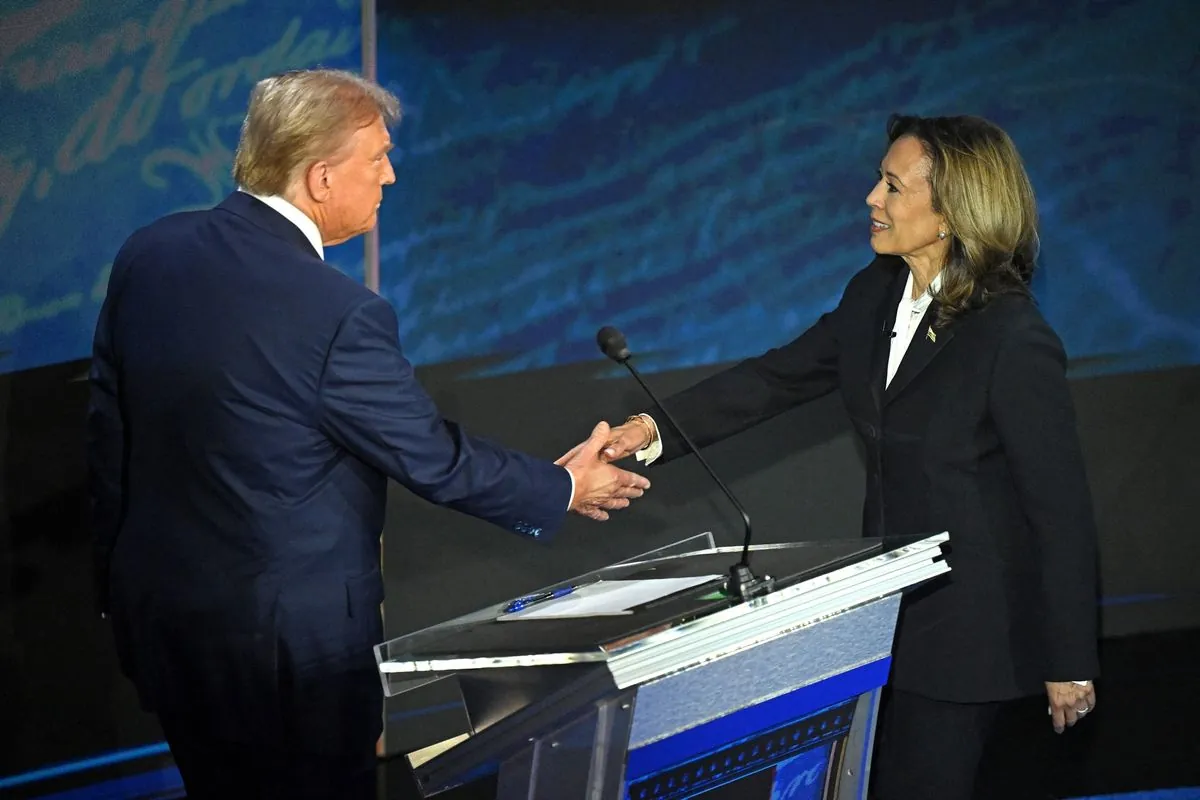Harris and Trump Sharpen Economic Messages for Battleground States
Vice President Kamala Harris and former President Donald Trump prepare to deliver contrasting economic speeches, while Harris secures a major Muslim-American endorsement and faces questions about security lapses.

As the 2024 U.S. presidential election approaches, Vice President Kamala Harris and former President Donald Trump are refining their economic messages for voters in crucial battleground states. Both candidates are addressing criticisms while presenting their visions for the nation's economic future.
Harris, the first woman and person of color to serve as Vice President, is emphasizing her capitalist credentials in response to accusations of being a "communist" by her opponent. Meanwhile, Trump, known for his business background, is leaning into his populist appeal after being characterized as a privileged heir by Harris.
The two candidates are scheduled to deliver speeches on Wednesday, highlighting the importance of economic issues in the upcoming election. This focus on the economy reflects the ongoing concerns of many Americans about financial stability and growth.
In a significant development, Harris will participate in a sit-down interview with Stephanie Ruhle of MSNBC in Pittsburgh. This marks her first one-on-one interview with a national network since becoming the Democratic nominee. The choice of Pittsburgh, often referred to as the "Steel City," underscores the importance of industrial regions in the election strategy.

Adding to Harris's campaign momentum, Emgage Action, a prominent Muslim-American voter mobilization group, has endorsed her candidacy. This endorsement comes at a crucial time, as many Muslim and Arab American organizations have opted to support third-party candidates or withhold endorsements altogether. Emgage Action's support could prove valuable in key battleground states like Michigan and Pennsylvania, where the organization has a significant presence.
"Emgage Action recognizes the responsibility to defeat former President Donald Trump in November."
The endorsement highlights the complex dynamics of the election, particularly in light of ongoing conflicts in the Middle East. It also demonstrates the importance of diverse voter demographics in shaping the outcome of U.S. presidential elections.
While the candidates focus on their economic messages, questions about security measures have arisen following a recent attack on Trump. The incident, which occurred on July 13 in Pennsylvania, resulted in one fatality and three injuries, including the former president. This security breach has led to scrutiny of the Secret Service's protective measures and raised concerns about the safety of presidential candidates.
The Secret Service, originally established in 1865 to combat currency counterfeiting, has faced criticism for apparent lapses in security. The acting director, Ronald Rowe Jr., expressed shame over the incident, particularly regarding an unguarded roof within shooting distance of the rally stage.
As the election draws nearer, both Harris and Trump continue to navigate the complex landscape of American politics. From economic policies to national security concerns, the candidates must address a wide range of issues to appeal to voters in battleground states. The outcome of this election, like those before it, will be determined not by the popular vote but by the Electoral College system, a unique feature of U.S. presidential elections established by the Constitution.
With less than two months until Election Day, the race remains highly competitive, reflecting the deeply divided nature of the American electorate. As both candidates continue to refine their messages and strategies, voters in key swing states will play a crucial role in determining the future leadership of the United States.


































